
There are a variety of factors that can lead to depression; life events, physical conditions, medication, stress and lack of sleep. The workplace itself can by a source of, or exacerbate depression — unless employers take a proactive approach to the issue.
Employers can help their employees and their own bottom lines by promoting a culture of overall well-being, encouraging personal growth and empowerment among workers, and ensuring benefits adequately address mental health needs.
Workplace Environment
A culture of wellness that includes emotional and mental health can go a long way toward reducing the stigma attached, leading workers to get the help they need sooner.
- Inclusive language. Mention of depression, anxiety, post-traumatic stress disorder and other mental health-related conditions should be as common as diabetes, hypertension and heart disease. The environment should be one that supports and encourages people to seek help. People suffering are more likely do so when they feel supported rather than embarrassed.
Click Link to Access Free PDF Download
“9-Element Blueprint To Create Your Workers’ Comp Employee Brochure”
- Engage leaders. Managers and other supervisors should be trained to use language that does not project negative attitudes about mental health issues. They should also understand how to identify emotional distress and respond promptly and constructively to behavioral performance issues.
- Provide information. The entire workforce should be educated about mental health issues. Your workers’ comp insurer and/or third-party administrator can help with various programs.
- Work/life balance. Time off for rest and relaxation is essential to a balanced life. Employers should provide adequate vacation time and consider a policy that encourages, if not mandates it be taken. Also, companies should make sure the workload is not continuously extreme, as a large workload without adequate time to complete tasks is viewed as a big stressor among many workers.
Personal Development
- Encouragement and support. Employees should have access to a variety of opportunities to improve their competencies, as it helps them with their current positions and can prepare them for promotional opportunities, and acquiring new skills and career development has been shown to enhance well-being. Learning new personal and interpersonal skills also contributes to a person’s overall psyche.
- Recognition. Everyone likes to be appreciated for a job well done. Employers should acknowledge such employees, whether through financial rewards, time off, or just celebrations during the workday. Such actions help build self-esteem and motivate workers to exceed expectations.
- Inclusion. Where possible, include workers in decisions about how work is done, whether their own or the organization as a whole. Encouraging workers to ask questions, suggest new ideas and provide feedback gives them a sense of pride in the workplace. Employees who have input into their work lives feel more empowered and have improved morale, along with psychological wellbeing.
Benefits
Individuals with depression and other emotional challenges can be valued employees — if they get the help they need. As an employer, you can make sure workers know where and how to seek help.
- Employee Assistance Programs. While many larger companies have Employee Assistance Programs, few employees actually use the services. Many don’t know they exist or understand how to access them. If your company has an EAP, make sure your employees are well informed about what is included and how to access the offerings.
- Health insurance. If your company offers health insurance, review it to see if and to what extent mental health programs and services are included. Where possible, make any necessary changes to foster engagement by workers, especially for early intervention. Educate workers about your health insurer’s mental health services through an intranet, pamphlets, and meetings from an insurer representative. If there are no mental health benefits included for workers, learn about community resources and inform workers about them.
Mental illnesses cost employers through direct and indirect costs and can be significant. Make sure your company does everything possible to encourage workers with depression or other mental health challenges to seek help early.

Contact: mstack@reduceyourworkerscomp.com.
Workers’ Comp Roundup Blog: http://blog.reduceyourworkerscomp.com/
©2023 Amaxx LLC. All rights reserved under International Copyright Law.
Do not use this information without independent verification. All state laws vary. You should consult with your insurance broker, attorney, or qualified professional




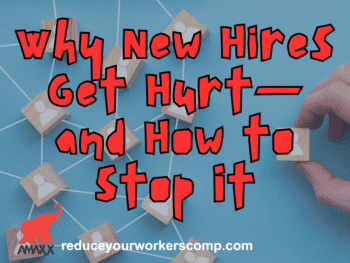
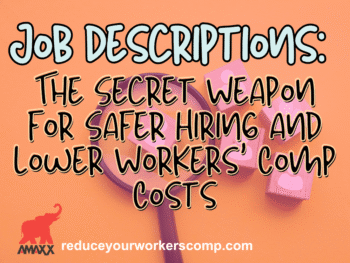
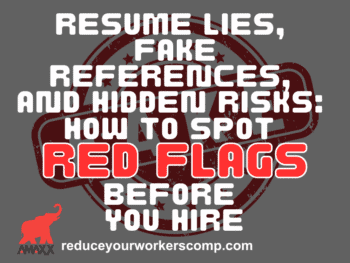
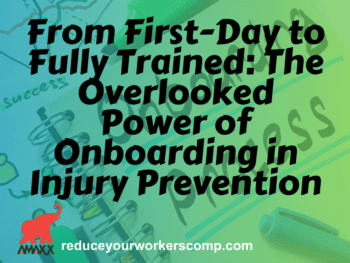
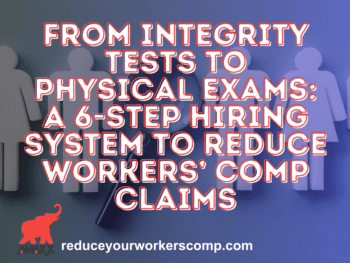
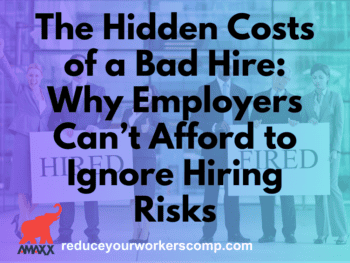
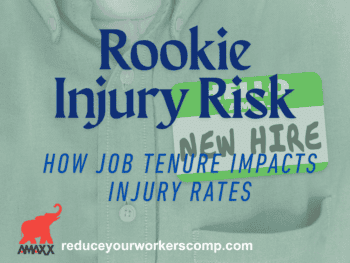



















Promoting a positive working environment – the KEY for mentally healthy workplaces